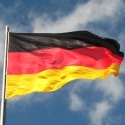German 5G Auction Bids Near €3B
Germany's spectrum auction looks set to exceed the €3 billion ($3.4 billion) threshold because of keen interest in the 2GHz band.

Bidding in Germany's auction of 5G airwaves was approaching the bottom end of analyst estimates Thursday morning, with companies offering about €2.9 billion ($3.3 billion) for the licenses to operate next-generation network services.
Financial analysts cited in the mainstream press expect the spectrum sale to rake in between €3 billion ($3.4 billion) and €5 billion ($5.6 billion) for the German government, which has been criticized for restricting the amount of spectrum sold to operators and attaching tough coverage obligations to 5G licenses.
But after bidding activity picked up on Wednesday afternoon, there is some concern that operators may overpay for spectrum and leave themselves short of cash for investment in 5G networks.
The recent surge has been driven by interest in the 2GHz band, where three operators -- Deutsche Telekom, Vodafone and 1&1 Drillisch -- are scrapping over licenses linked to 120MHz of airwaves.
Spectrum in this range, parts of which have previously been used to support 3G, would provide better coverage than the 3.6GHz "mid-band" frequencies that are also being licensed, and should allow operators to work with their existing "grid" of mobile sites. After round 126, operators had offered about €1.5 billion ($1.7 billion) for the 2GHz licenses on offer.
Meanwhile, the 3.6GHz band, the focus of interest during Italy's 5G spectrum auction last year, had attracted bids worth about €1.1 billion ($1.2 billion), with Deutsche Telekom, Telefónica, Vodafone and 1&1 Drillisch bidding for 300MHz worth of licenses. Additional payment obligations on auction participants came to nearly €300,000 ($337,000).
Stakeholders are worried about a repeat of the Italian 5G auction, when companies agreed to spend €6.55 billion ($7.4 billion) on licenses despite tough operating conditions in the Italian mobile market. Telecom Italia and Vodafone have subsequently announced a deal to build a 5G network in partnership, cutting down on costs, while Vodafone has also announced plans to slash more than 1,100 jobs, or about 17% off its entire workforce in Italy.
High spectrum charges could hinder the pace of 5G rollout and even threaten the competitiveness of Germany's digital economy.
Even before bidding had reached the €2 billion ($2.3 billion) mark, Timotheus Höttges, the boss of German telecom incumbent Deutsche Telekom, had lashed out at German authorities for excluding a 100MHz block of mid-band airwaves from the current sale, saying this move had driven up prices.
German regulators have angered the telecom industry with plans to sell that 100MHz to industrial companies, such as carmakers. An unprecedented sale of telecom spectrum to organizations outside the telecom industry would allow those companies to operate their own 5G services without relying on existing telcos.
You're invited to attend Light Reading's Big 5G Event! Formerly the Big Communications Event and 5G North America, Big 5G is where telecom's brightest minds deliver the critical insight needed to piece together the 5G puzzle. We'll see you May 6-8 in Denver -- communications service providers get in free!
A more detailed analysis of the auction results shows that bidding for 3.6GHz licenses has barely changed in the past few days, with spectrum priced at about $0.05 per MHz per head of population (per MHz pop) -- far less than the $0.40 operators spent on mid-band airwaves in Italy.
However, the value of the 2GHz spectrum has risen from $0.13 to $0.17 per MHz pop in the past couple of days, with 1&1 Drillisch seemingly determined to acquire licenses in this band.
The broadband operator has previously rented capacity on the networks of other companies to provide mobile services, but it now harbors an ambition to become a fourth national mobile network operator.
It has reportedly said it will slash dividends to fund the acquisition of licenses and the rollout of 5G networks. Its share price is down 23% in Frankfurt since the beginning of the year.
Related posts:
— Iain Morris, International Editor, Light Reading
Read more about:
EuropeAbout the Author(s)
You May Also Like












